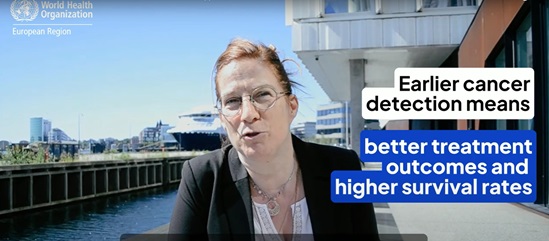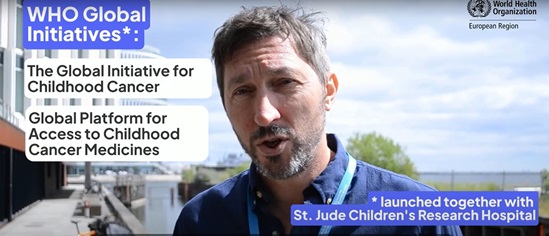Joining forces: United Action Against Cancer
Last year in the WHO European Region, 4.8 million people were diagnosed with cancer and 2.1 million people died from it. Without bolder action now, these figures are estimated to reach 5.4 million and 2.5 million, respectively, by 2030.
WHO/Europe launched United Action Against Cancer, a pan-European cancer movement, to join forces against cancer in the European Region with the long-term vision to eliminate cancer as a life-threatening disease. The movement will:
- enhance collaborations and unite partners from all levels
- reinforce political leadership in countries
- engage young people and civil society to galvanize grassroots movements
- fast-track implementation of WHO signature solutions.
The WHO signature solutions are a set of cost-effective, evidence-based policies and measures accompanied by technical guidance and tools for implementation. They align WHO expertise and resources to achieve real impact at the country level. The United Action Against Cancer movement brings these solutions forward for policy-makers, enabling them to make the right decisions to tackle cancer effectively.
The WHO signature solutions cover the 5 dimensions of the cancer-control continuum:
- prevention
- early detection
- diagnosis and treatment
- palliative care
- cancer control planning and data
Cancer control is a key priority for the achievement of the Sustainable Development Goal target to reduce by one third premature mortality from noncommunicable diseases by 2030. United Action Against Cancer is a call to unite from grassroots to governments for better cancer control, with a commitment to position people at the centre and leave no one behind.









